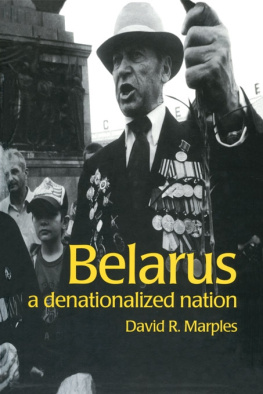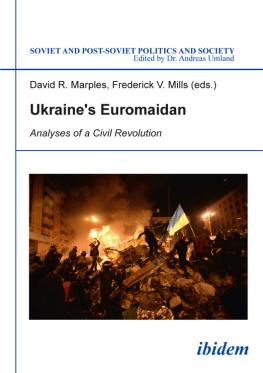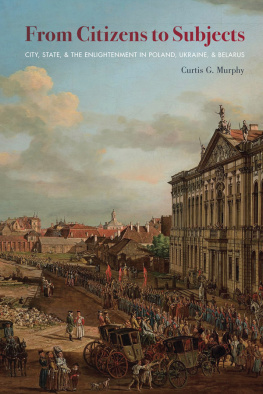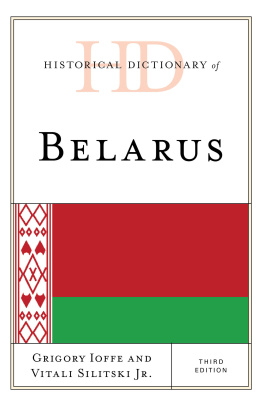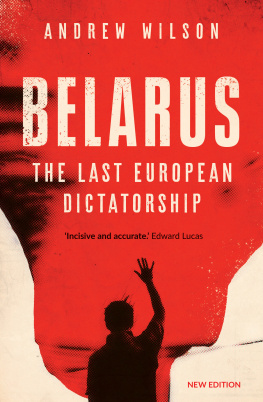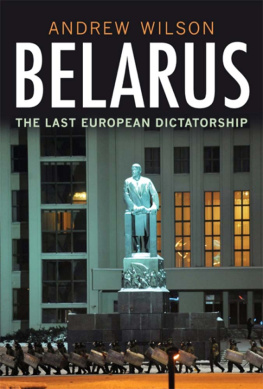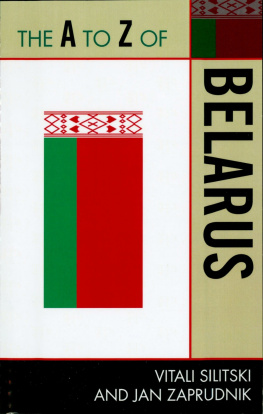| Polatsk region is mentioned for the first time in the Primary Chronicle. |
| Kievan Rus ruler Volodymyr accepts Christianity. |
| 1263 | Belarusian lands are incorporated into the Grand Duchy of Lithuania. |
| 1385 | Lithuania and Poland are united through marital ties of their rulers. |
| 1529 | Code of Laws of the Grand Duchy of Lithuania approved. |
| 1569 | Formation of a Polish-Lithuanian Commonwealth. |
| 1596 | A Uniate (Greek Catholic Church) is founded in the Grand Duchy of Lithuania at the Council of Brest. |
| 17721795 | Three Partitions of Poland between Austria, Russia and Prussia; all Belarusian territories are incorporated into the Russian Empire. |
| 18631864 | Polish rebellion against the Russian Empire with the participation of the Belarusian Kastus Kalinouski. |
| 1914 | Outbreak of World War I. |
| 1917 | Revolutions in Russia. |
| 1918 | Declaration of independence by the Belarusian Rada. |
| 1919 | A Soviet regime is declared in Belarus. |
| 1 February 18 July 1919 | Existence of a Lithuanian-Belarusian Soviet regime. |
| 1919March 1921 | Polish-Soviet war. |
| 18 March 1921 | Treaty of Riga ends Polish-Soviet war. Western Belarus is incorporated into Poland. |
| 30 December 1922 | Belarus becomes a member of the Union of Soviet Socialist Republics (USSR). |
| 11 April 1927 | A new Constitution is established for the BSSR. |
| 19291932 | Mass collectivization campaign in the BSSR. |
| 19371941 | Period of Stalin purges. Executions by the NKVD at Kurapaty, near Minsk. |
| 17 September 1939 | Soviet army invades Polish eastern territories. |
| October December 1939 | Formal incorporation of Western Belarus into the Soviet Union as part of the BSSR. |
| 22 June 1941 | Nazi Germany invades the Soviet Union. |
| 19411944 | Period of German occupation of Belarus. |
| 3 July 1944 | City of Minsk is recaptured by the Red Army. |
| 19471948 | Period of renewed repressions under guidance of Andrey Zhdanov. |
| 19561965 | Period of leadership of the Partisans begins, when Kiryl T. Mazurau becomes the party leader. |
| 19651980 | Pyotr Masherau leads the Communist Party of Belarus. |
| 26 April 1986 | Accident at the Chernobyl nuclear power station in Ukraine severely contaminates Belarusian territory. |
| 2425 June 1989 | Founding Congress of the Belarusian Popular Front in Vilnius, Lithuania. |
| 23 June 1990 | Vyachaslau Kebich is appointed Prime Minister of the BSSR. |
| 27 July 1990 | Belarus declares state sovereignty. |
| 25 August 1991 | Belarus declares independence in response to the failed putsch in Moscow. |
| 19 September 1991 | The BSSR is renamed the Republic of Belarus, with a new flag and state symbols. |
| 19 September 1991 | Stanislau Shushkevich is elected Speaker of the Supreme Soviet (parliament) of Belarus. |
| 8 December 1991 | The Belavezha agreement is signed between Russia, Ukraine and Belarus, forming the Commonwealth of Independent States (CIS). |
| 25 December 1991 | The Soviet Union is formally dissolved. |
| February 1993 | The Belarusian parliament ratifies the START-1 Treaty and accepts the Nonproliferation Treaty as a neutral country. |
| May 1993 | The Belarusian Popular Front forms a political party. |
| January 1994 | Shushkevich is dismissed as Speaker of the parliament. |
| February 1994 | A new Constitution is established in Belarus. |
| 12 April 1994 | Russia and Belarus announce a monetary union (abandoned by the Russian side later in the year). |
| 23 June and 10 July 1994 | Presidential elections result in victory for Alyaksandr Lukashenka. |
| January 1995 | Belarus joins the NATO Partnership for Peace Program. |
| January 1995 | Russia and Belarus form a customs union. |
| 21 February 1995 | Russia and Belarus sign a Treaty of Friendship and Cooperation. |
| 14 May 1995 | Parliamentary elections and a national referendum, which votes to change the state symbols and national flag, and supports the elevation of Russian as a state language. |
| 2 April 1996 | Belarus and Russia announce the formation of a Community of Sovereign Republics. |
| 26 April 1996 | Up to 80,000 participate in Chernobyl march in Minsk and clashes with militia result. Over 200 people arrested. |
| November 1996 | Last of the nuclear weapons are removed from the territory of Belarus. |
| 24 November 1996 | Referendum increases powers of the president and divides parliament into two houses: the House of Representatives and the Council of the Republic. A new Constitution is approved for Belarus. |
| MarchAugust 1997 | Repression against the press and nongovernmental organizations. |
| 2 April 1997 | Belarus and Russia sign an Act of Union (ratified by the parliaments of both countries in June 1997). |

